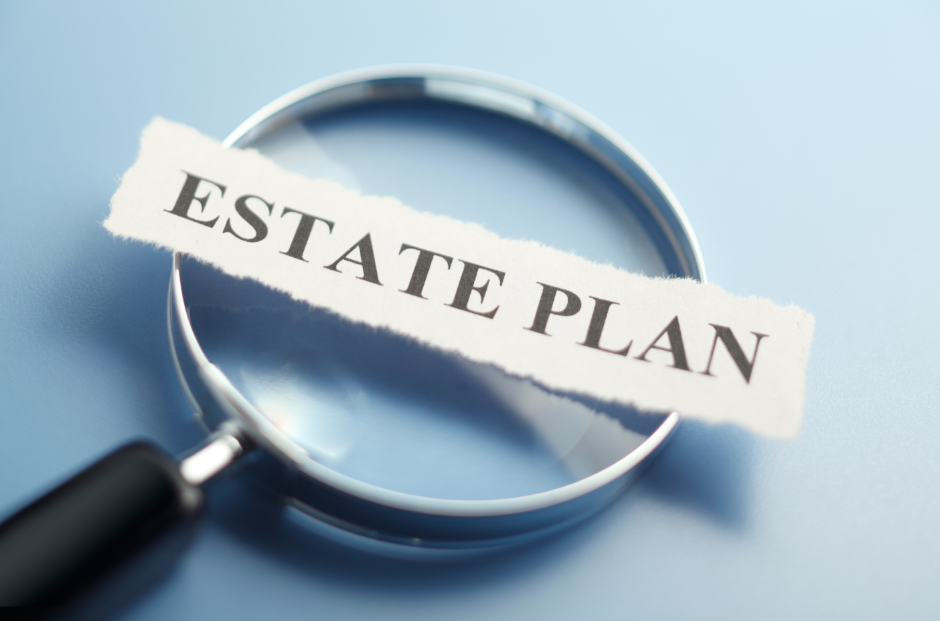What Is Your Estate?
Your estate is made up of all your assets minus all your liabilities. Your assets may include:
- Real estate, including your home, rental property, or land
- Checking and savings accounts
- Stocks, bonds, or other investments
- Pensions
- Annuities
- Vehicles such as your personal car, recreational vehicle, commercial vehicle
- Personal property like jewelry, art, or furniture
- Insurance policies
- Retirement accounts
- Cash
- Collectible items
- Intellectual property like patents or trademarks
- Digital property
- Valuable personal items like antiques or fine art
- Copyrighted property like books you’ve authored, art you’ve created, or songs you’ve written
Your liabilities may include:
- Credit card debt
- Mortgages
- Car loans or leases
- Student loans
- Personal guarantees
- Wages payable
- Accounts payable
What is Estate Planning?
Estate planning is the process of arranging how your personal affairs and assets will be managed at the time of your incapacitation or death. Estate planning is likely to include:
- Designation of medical care to be administered upon incapacitation.
- Funeral preparation.
- Designating a power of attorney to make medical and financial decisions upon your incapacitation.
- A will with bequests to heirs and loved ones.
- Bequests to charity.
- Methods to minimize gift taxes, estate taxes, and generation-skipping transfer taxes.
- Methods to maximize the value of the estate by reducing expenses.
- Planning for incapacity.
- Naming an executor.
- Naming a guardian.
- Naming a trustee.
Estate planning usually involves the creation of a will, trusts, and powers of attorney. The goal of estate planning will be determined by the specific wishes of the estate owner and may be as simple or complex as the owner’s wishes and needs directs.
Why Do It?
Many of us devote considerable time and energy to providing for and protecting our loved ones. Estate planning is another thoughtful way to do that.
How much time do you spend planning this year’s vacation or which car to buy?
Estate planning isn’t only for the top 1% of the wealthiest people. You, too, have an estate. It’s worth the insignificant time you and your attorney will spend planning the dissemination of your assets upon your death to provide for and protect your loved ones. Because, if you don’t, the state will distribute your assets according to its intestacy laws.
(See our March 2024 blog post)
Consider this:
- Creating an Estate Plan will protect your children. If you have small children (or other young dependents), you can name a guardian for them in your will to ensure that your wishes for them are implemented. If you don’t do the planning, the state will substitute its judgment for yours in the event of your death.
- Your Estate Plan will protect your beneficiaries. One of the main reasons for executing an estate plan is to designate your beneficiaries. By doing so, you ensure that your assets will pass to the people of your choice. Without an estate plan, the court system will make those decisions for you.
- An Estate Plan Avoids Messy Litigation and Costly Fees. By putting your wishes into a legally binding estate plan now, you control how and even when your finances and assets will be distributed in the event of your death or incapacitation. Only you should decide how to bequeath your assets, since that will depend on who you think should receive them. Do you have beneficiaries who may need a larger share of your assets due to a developmental or physical disability? Has one of your children been more present in your life or sacrificed more to care for you? Your attorney can help walk you through those decisions to ensure your wishes are carried forward without the possibility of messy litigation.
- Creating an Estate Plan Helps Your Beneficiaries Avoid Unnecessary Taxes. Your attorney will guide you in creating an estate plan that will transfer assets to your heirs while reducing or eliminating their resulting tax burden. Without such a plan, their inheritance could be reduced significantly.


